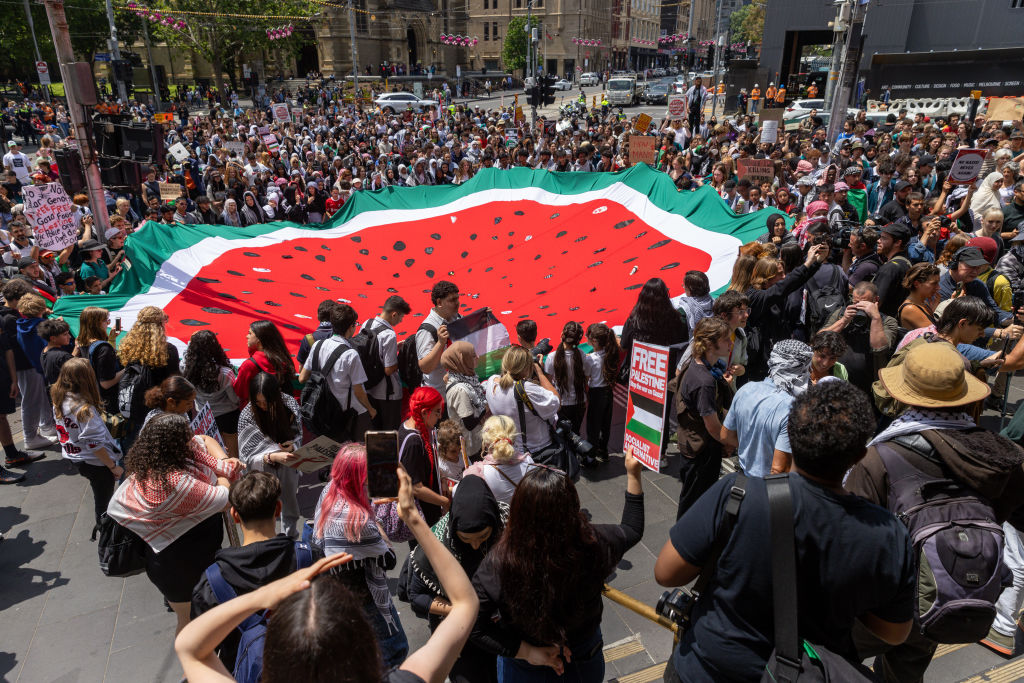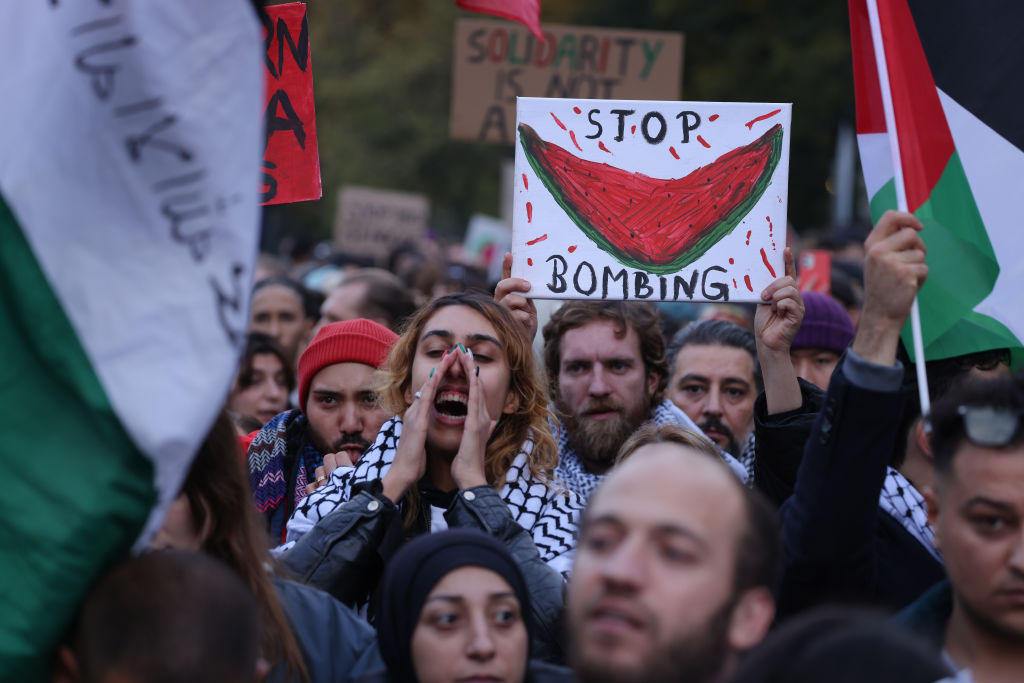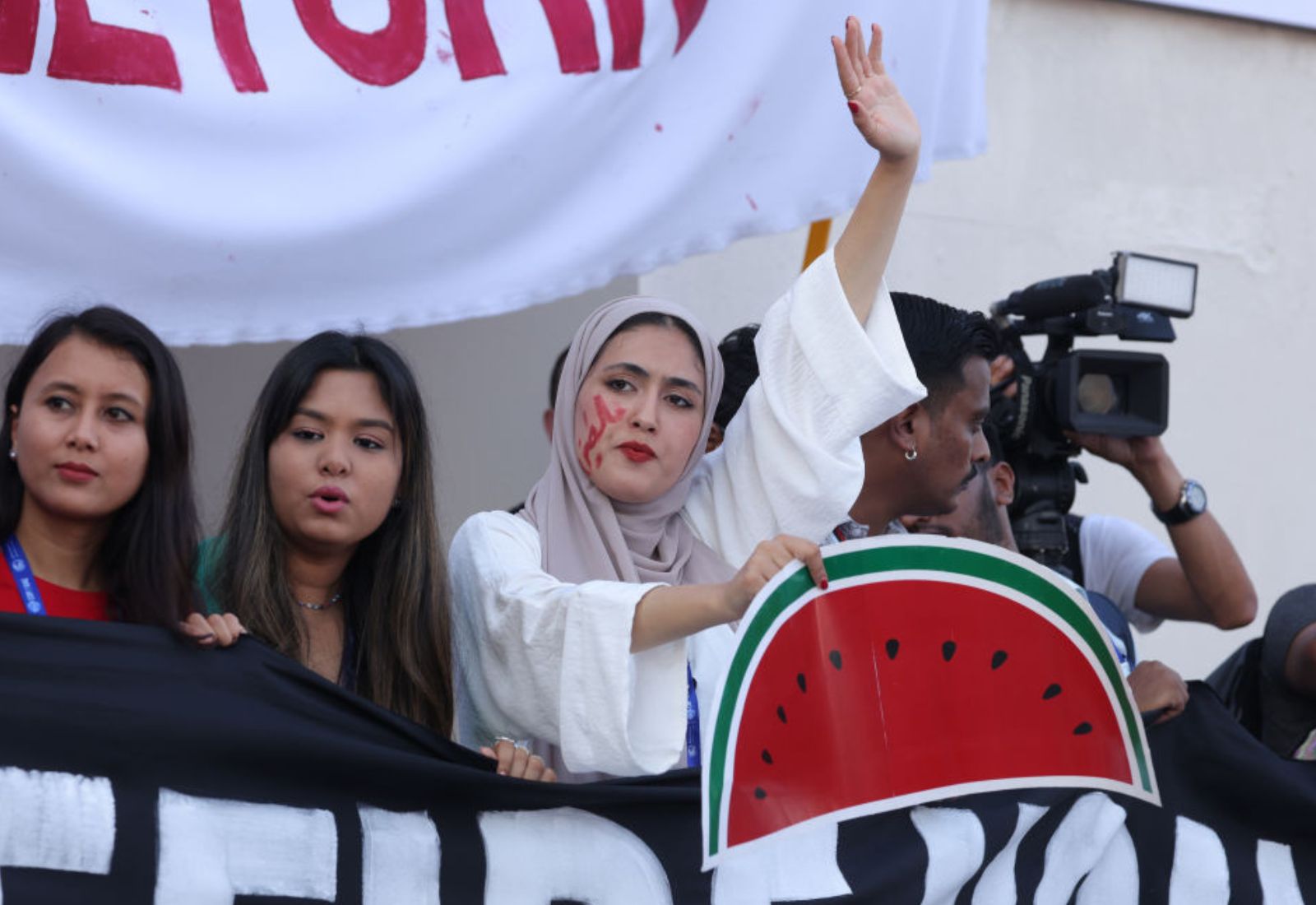What comes to mind when you think of Palestine? Perhaps you envision a grove of olive trees swaying to the beat of a gentle breeze. Maybe you picture the bold black and white of the keffiyeh, or the glorious gold curves of Dome of the Rock.
Recently, however, another symbol has resurfaced, representing the sweet spirit of resilience integral to the Palestinian culture.
It is that of the watermelon.
In image, emoji and graphic form, the fruit has splashed its way onto our screens, with more and more people embracing the motif.
But why watermelons? What does it all mean?
According to Palestinian artist Sandra Watfa, history answers these questions best.
“Watermelons have been grown throughout the entirety of Palestine, but specifically cultivated in the West Bank and Gaza. Their colours being red, white, black and green, they visually reflect the Palestinian flag.”
“The fruit has long been the emblem of Palestinian solidarity and resistance since our flag was banned in 1967 by the Israeli colonial entity.”
This banning of the Palestinian flag is just one form of censorship. In recent years, the keffiyeh has also been weaponised, with Zionist supporters claiming those who wear the chequered scarf are supporting terrorism.
For Watfa, this only strengthens her resolve to speak out. “No one can douse the flame of the human spirit. As long as there is oppression, there will always be people who are ready to die on their feet rather than live on their knees.”
“The watermelon facilitates this in the most innocuous way. Symbols engage the part of the brain that is connected to creativity and perception, and therefore draws the viewer in at a deeper level.”
Beyond the support expressed online, there are various ventures taking the symbol even further. The Watermelon Project is one such example, a social enterprise selling watermelon-themed products such as pins and tote bags.
“The project came to fruition in an effort to unite the world,” says founder Bilal Muhammad. “I wanted to create something akin to the poppy for armistice day, something everyone and anyone could wear to show solidarity to the people of Palestine.”
“It’s not just about products. It’s a movement, a collective effort to elevate the watermelon as a beacon of hope. This association has turned it into a subtle yet powerful symbol of Palestinian identity and nationalism.”

One hundred percent of profits from The Watermelon Project go to grassroots charities. These have ranged from female-run organisation Forgotten Women to Medical Aid for Palestinians (MAP), a UK non-profit serving Palestinians back home and abroad.
Meanwhile, for Tel Aviv-based Palestinian lawyer Aisha Malik, the watermelon represents the humour with which her people stand up to continued persecution.
“It resembles this outsmarting, this outwitting, this insistence. Palestinians continue to persevere, to teach their kids and future generations.”
She adds: “It also shows how much we are censored, in that we have to find creative outlets. Right now, even saying this, I had to close my office door in Tel Aviv. We have to be super careful of what we say.”
As for whether there is a risk of the watermelon facing backlash by Israel and its supporters, Malik believes it’s only a matter of time.
“They will try to restrict it, but at the same time, how absurd would that be? I think that’s why it’s so clever. With the keffiyeh and the flag you can argue it’s political, but imagine how funny it would be to literally ban a watermelon symbol?”
Back in the 1980s, Palestinian artist Sliman Mansour allegedly had a showcase shut down by Israeli armed forces because his works featured colours from the Palestinian flag.
Mansour has since recalled officers telling him that even images of watermelons would be illegal. Time will tell whether symbols of the fruit will be further challenged by Israel.
“I think there will ultimately be some sort of backlash,” says Muhammad from The Watermelon Project. “There is already a movement towards pro-zionist activists taking over the watermelon on social media.”

Finally, one should note that this isn’t the first time watermelons are being used symbolically. Following African-American emancipation in the US, many former slaves grew watermelons to sell. The fruit represented their newfound liberation.
However, for white Americans, it embodied a loss of dominance, and was consequently hijacked and used in offensive caricatures of black Americans.
Far from this historic anti-Black racist trope, the pro-Palestinian movement’s claiming of the watermelon revives its original meaning, signalling newfound hopes for freedom.
Some names have been changed to protect the identity of our sources.





